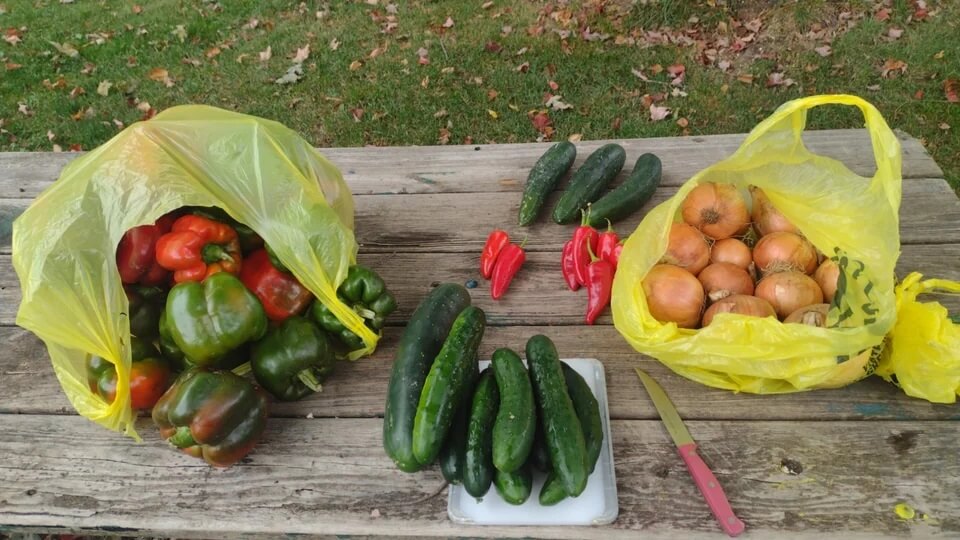One Redditor drew attention in the r/frugal subreddit recently with a photo of a nice haul of vegetables from a nearby farm stand.
For a meager $6.90, they've picked up one plastic bag overflowing with bell peppers, another full bag of onions, about a dozen zucchinis, and six chilis.

In the comments, they explain that the bell peppers came for free — they had been sitting on the stall for a few days, and the store owner wanted to replenish the stock.
Usually, the peppers would be sold for $0.20 each — a steal compared to the $1.89 that the Redditor says they would have to spend in their local grocery store.
There are many health benefits from eating locally grown, organic vegetables — organic crops are thought to contain more vitamins and antioxidants and have lower levels of nitrates (which can increase your cancer risk in large quantities).
The positive effects on the environment are indisputable, too. Produce sold in supermarkets is more likely to have traveled a large distance, but local growers and sellers have a more direct route from field to shelf, therefore producing less carbon pollution.
And while conventional farming relies on the use of pesticides, which causes biodiversity loss, organic farming is linked to healthy soil that retains more water and oxygen.
The Redditor said a Mennonite neighbor runs the stand. Not everyone may have a farm stand nearby as a great route to cheaper, more sustainable food — but there are other, more accessible ways to procure organic veggies.
As one Redditor commented, "I know not everyone has a Mennonite neighbor with a veggie stand but for frugality (and health) the more of this kind of food we eat, the better. See also ethnic grocery stores and growing your own, even on a balcony or some herbs in a sunny window."
"That would be $40 at Whole Foods," another commenter pointed out.
"Roadside stands will forever be my favorite grocery store," said another. The original poster replied to this comment, saying, "I love this lady, she's literally a mile away and has the best stuff all summer/fall."
Join our free newsletter for easy tips to save more, waste less, and help yourself while helping the planet.









